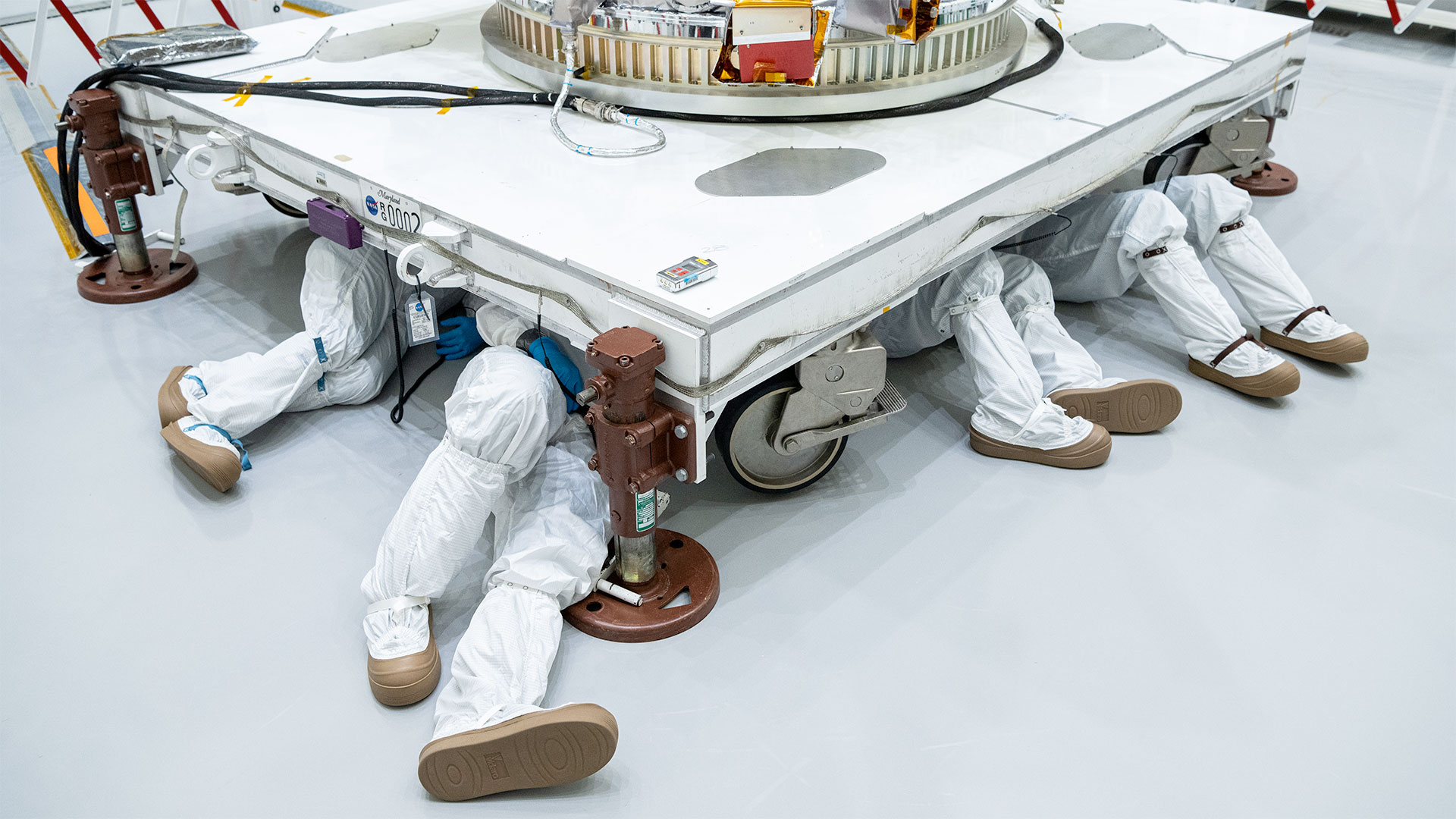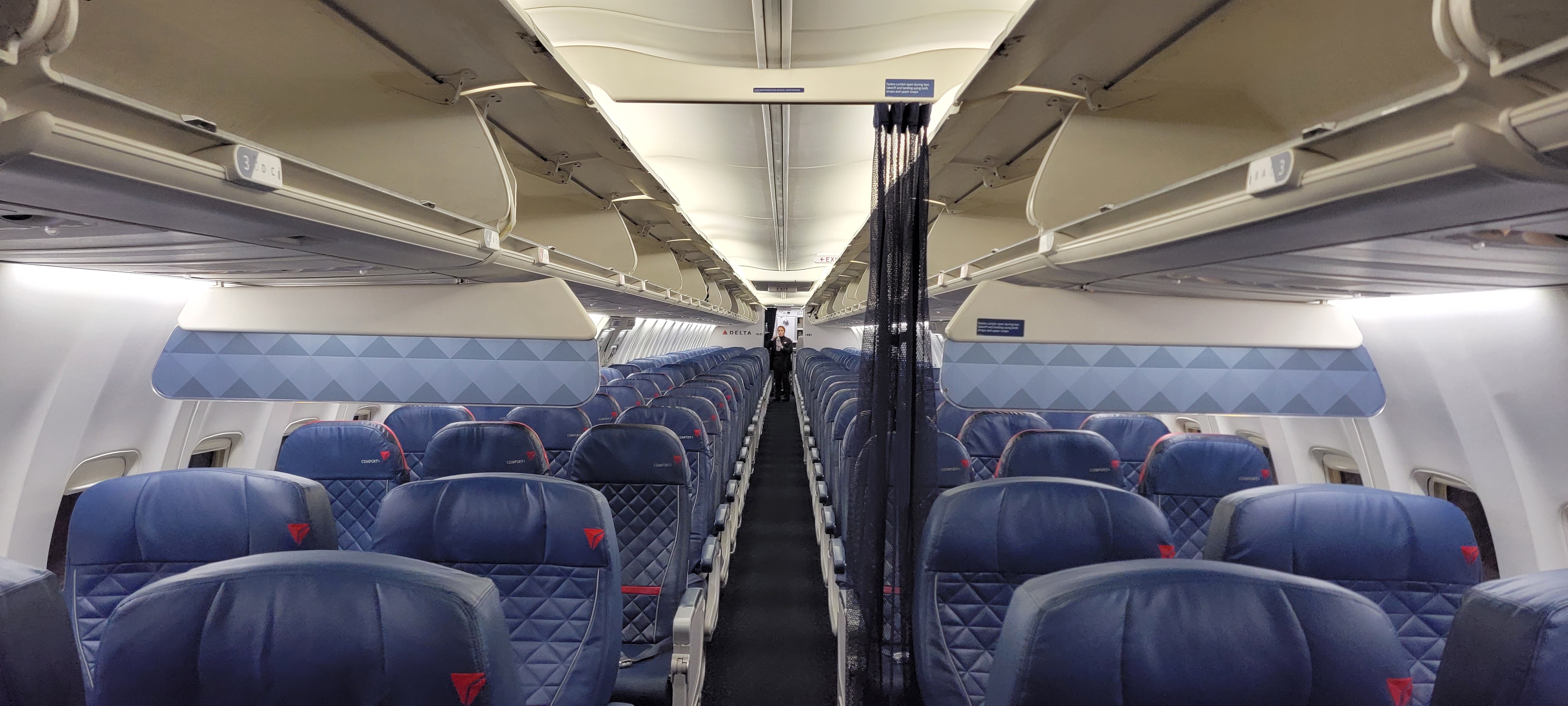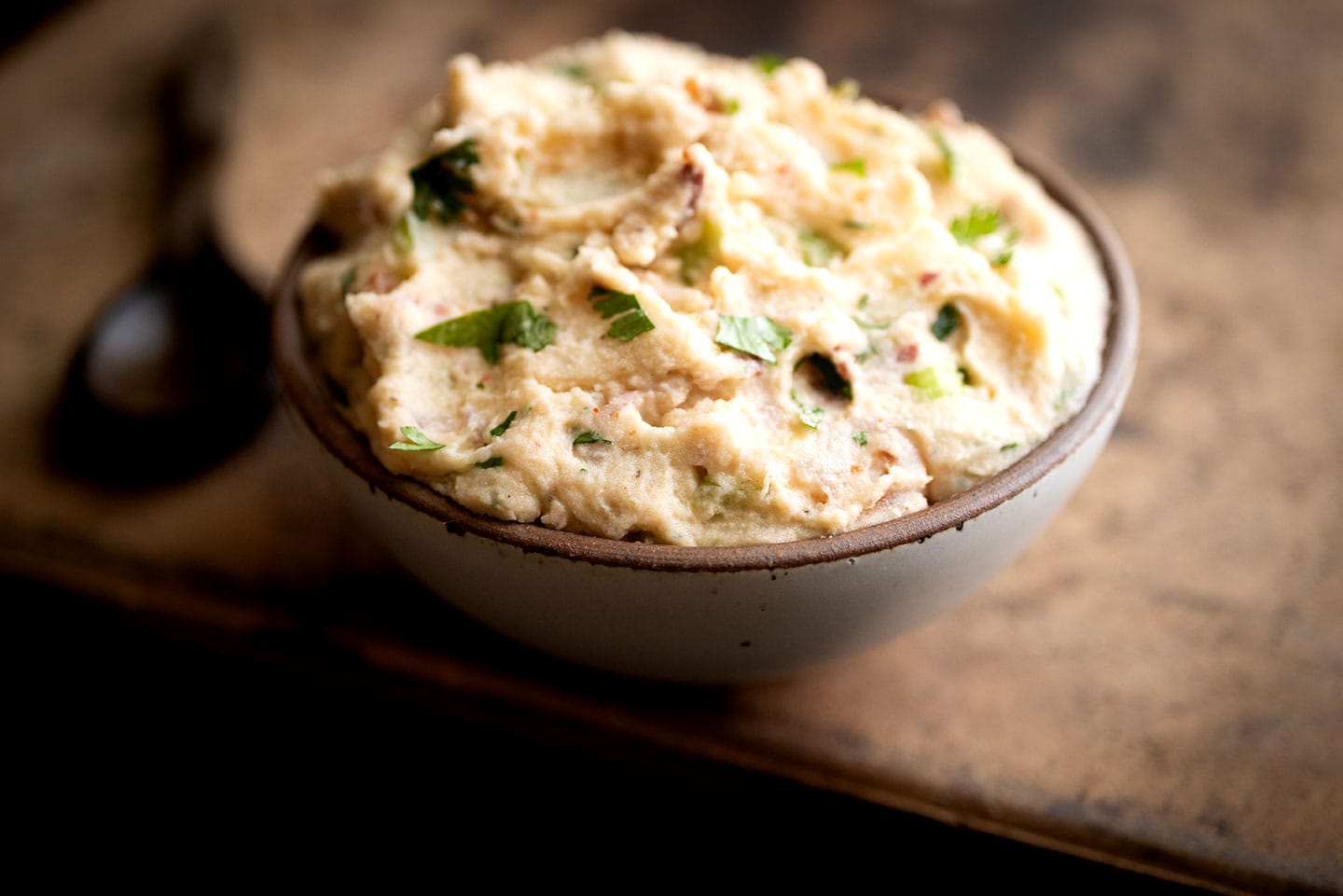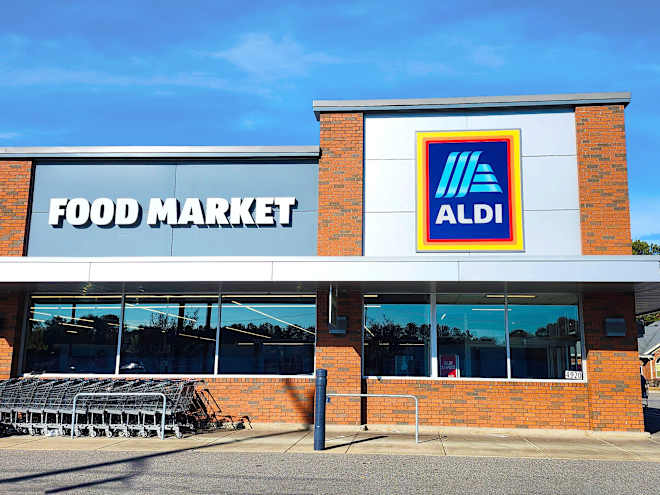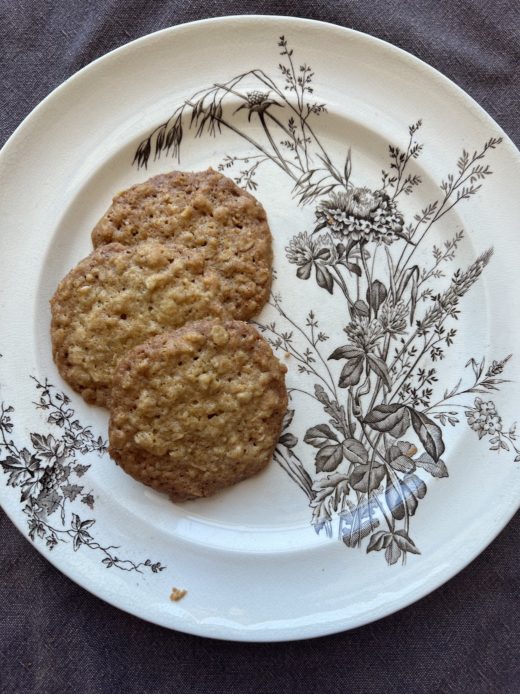After Syria’s Civil War, Refugee Chefs Must Decide Where to Make Their Home
A chef at Vezir Han prepares slow-cooked lamb and rice. For 13 years, displaced Syrians have filled Istanbul with kebabs, shawarma, and falafel. But after the fall of the Assad government, the refugee community and the Turkish city are transforming. Aziz Habesh knows his way around kibbeh. Sitting in Vezir Han, in the shadow of Istanbul’s Fatih Mosque, the maitre d’ begins to list the types on offer at the Syrian restaurant. He starts counting on his right hand: fruity kibbeh safarjaliyeh made with quince and pomegranate molasses; garlicky labaniyyeh simmered in yogurt; samakiyah cooked with tangy, earthy sumac; baked sajiyeh domed from cooking on a saj; charred, oblong mishwiyyeh studded with crunchy pine nuts. He lets out a dramatic guffaw and continues on his left hand: spiraled, ghee-glazed mabroumah; tartare-like kibbeh nayyeh — he pauses to tend to a family of customers. The Aleppo native has been working at the restaurant for 11 years, with another 40 years of experience before that back in Syria. He’s not the only one to continue his career here after crossing the border into Turkey. Over the last decade, the area around the Fatih Mosque has welcomed waves of Syrian immigrants, earning the nickname the Syrian Bazaar. “We have had a good role here,” Habesh says, “especially with Syrian restaurants and food.” Outside Vezir Han. Outside Vezir Han, hawkers sell the three-star flags of the Syrian revolution alongside Styrofoam plates of flaky shaabiyat (cream-stuffed pistachio pastry) from Idlib, stuffed qatayef (nutty pancakes dunked in simple syrup) from Damascus, and halawet el-jibn (semolina-cheese rolls) from Hama. In pockets across the Fatih district, shopfronts are strung with signs in Arabic script referencing various Syrian cities, the smell of Syrian-style cardamom-spiced coffee hangs in the air, and diners keep the streets humming throughout the night. Vezir Han and the Syrian Bazaar are a byproduct of the nearly 13-year-long civil war in Syria, which produced one of the largest displacement crises of our time. Approximately 5.5 million Syrians fled to the five neighboring countries, including nearly 4 million to Turkey by 2022, according to the U.N. Refugee Agency. Then, all of sudden, the war was over. It took less than two weeks in December 2024 for some of Syrian President Bashar al-Assad’s opponents to bring down the Baathist government and remove the Assad family from over 50 years of power. Cities fell rapidly one after another on the road to Damascus — though violence, like clashes along the Syrian coast in March, continues to be a significant concern. The entire world remains stunned about what happened and unclear on what is yet to come, none more than refugees in Turkey. Within a month of Assad’s fall, more than 125,000 Syrians returned home, according to the U.N., and the Turkish government estimates that 2 million will return in total. But restaurant owners like Habesh still face a heavy choice: stay in the life they’ve built in exile, or take a chance returning to Syria. “We all love where we are from,” Habesh says. “But first we need peace. We need security.” He flashes a toothy grin, and adds, “And then we can open another restaurant.” Preparing kebab majouka, a dish from Aleppo, made with ground beef and filled with melted cheese, mushrooms, and bell peppers. At Sham Market, a go-to source in Fatih for Syrian staples from pickles to pastries, Anas Rawabi hands over a spicy ball of shanklish, a type of aged Levantine cheese, before stuffing bottles of tamarind and apricot juice into a bag for an elderly shopper. “We had been wishing for this to happen for so long,” says Rawabi, who has been in the city since 2016 and running the market since 2018. “But I still cannot believe it has happened.” Rawabi plans to do an exploratory trip this summer once his children are out of school. The Turkish government has established procedures that allow Syrians to visit before deciding to return. Rawabi wants his children to meet his parents, and given Syria’s immense reconstruction needs, he thinks he can help grow his father’s electronics shop in Damascus. But he’s not ready to uproot his family once again just yet. Besides, he’s got his customers. “We play a vital role in the lives of Syrian communities living here,” Rawabi says. “We try to make them feel connected to home.” Businesses like Sham Market don’t just offer nostalgic indulgences; they’re also lifelines for a refugee community that has dealt with unpredictable and, at times, outright hostile hosts in Turkey. President Recep Tayyip Erdoğan established an open-door policy for Syrians at the beginning of the war, and many Turkish residents initially welcomed refugees with open arms. But as the Syrian community in Turkey grew and the war dragged on, sentiment in some corners has since turned. Th


For 13 years, displaced Syrians have filled Istanbul with kebabs, shawarma, and falafel. But after the fall of the Assad government, the refugee community and the Turkish city are transforming.
Aziz Habesh knows his way around kibbeh. Sitting in Vezir Han, in the shadow of Istanbul’s Fatih Mosque, the maitre d’ begins to list the types on offer at the Syrian restaurant. He starts counting on his right hand: fruity kibbeh safarjaliyeh made with quince and pomegranate molasses; garlicky labaniyyeh simmered in yogurt; samakiyah cooked with tangy, earthy sumac; baked sajiyeh domed from cooking on a saj; charred, oblong mishwiyyeh studded with crunchy pine nuts. He lets out a dramatic guffaw and continues on his left hand: spiraled, ghee-glazed mabroumah; tartare-like kibbeh nayyeh — he pauses to tend to a family of customers.
The Aleppo native has been working at the restaurant for 11 years, with another 40 years of experience before that back in Syria. He’s not the only one to continue his career here after crossing the border into Turkey. Over the last decade, the area around the Fatih Mosque has welcomed waves of Syrian immigrants, earning the nickname the Syrian Bazaar.
“We have had a good role here,” Habesh says, “especially with Syrian restaurants and food.”
/cdn.vox-cdn.com/uploads/chorus_asset/file/25994556/Vezir_Han_Ahmed_Deeb_Vezir_Han_Restaurant_in_the_Fatih_neighborhood_of_Istanbul._36.jpg)
Outside Vezir Han, hawkers sell the three-star flags of the Syrian revolution alongside Styrofoam plates of flaky shaabiyat (cream-stuffed pistachio pastry) from Idlib, stuffed qatayef (nutty pancakes dunked in simple syrup) from Damascus, and halawet el-jibn (semolina-cheese rolls) from Hama. In pockets across the Fatih district, shopfronts are strung with signs in Arabic script referencing various Syrian cities, the smell of Syrian-style cardamom-spiced coffee hangs in the air, and diners keep the streets humming throughout the night.
Vezir Han and the Syrian Bazaar are a byproduct of the nearly 13-year-long civil war in Syria, which produced one of the largest displacement crises of our time. Approximately 5.5 million Syrians fled to the five neighboring countries, including nearly 4 million to Turkey by 2022, according to the U.N. Refugee Agency. Then, all of sudden, the war was over. It took less than two weeks in December 2024 for some of Syrian President Bashar al-Assad’s opponents to bring down the Baathist government and remove the Assad family from over 50 years of power. Cities fell rapidly one after another on the road to Damascus — though violence, like clashes along the Syrian coast in March, continues to be a significant concern.
The entire world remains stunned about what happened and unclear on what is yet to come, none more than refugees in Turkey. Within a month of Assad’s fall, more than 125,000 Syrians returned home, according to the U.N., and the Turkish government estimates that 2 million will return in total. But restaurant owners like Habesh still face a heavy choice: stay in the life they’ve built in exile, or take a chance returning to Syria.
“We all love where we are from,” Habesh says. “But first we need peace. We need security.” He flashes a toothy grin, and adds, “And then we can open another restaurant.”
/cdn.vox-cdn.com/uploads/chorus_asset/file/25994552/Vezir_Han_Ahmed_Deeb_A_Syrian_chef_is_preparing_a_dish_of_Kebab_Majouka__a_special_dish_from_Aleppo__made_with_ground_beef_and_filled_with_melted_cheese__mushrooms__and_bell_peppers__then_grilled_to_perfection._8.jpg)
/cdn.vox-cdn.com/uploads/chorus_asset/file/25994553/Vezir_Han_Ahmed_Deeb_A_Syrian_chef_is_preparing_a_dish_of_Kebab_Majouka__a_special_dish_from_Aleppo__made_with_ground_beef_and_filled_with_melted_cheese__mushrooms__and_bell_peppers__then_grilled_to_perfection._10.jpg)
/cdn.vox-cdn.com/uploads/chorus_asset/file/25994554/Vezir_Han_Ahmed_Deeb_Kebab_Majouka_is_a_special_dish_from_Aleppo__made_with_ground_beef_and_filled_with_melted_cheese__mushrooms__and_bell_peppers__then_grilled_to_perfection._13.jpg)
/cdn.vox-cdn.com/uploads/chorus_asset/file/25994555/Vezir_Han_Ahmed_Deeb_Kebab_Majouka_is_a_special_dish_from_Aleppo__made_with_ground_beef_and_filled_with_melted_cheese__mushrooms__and_bell_peppers__then_grilled_to_perfection.14.jpg)
At Sham Market, a go-to source in Fatih for Syrian staples from pickles to pastries, Anas Rawabi hands over a spicy ball of shanklish, a type of aged Levantine cheese, before stuffing bottles of tamarind and apricot juice into a bag for an elderly shopper.
“We had been wishing for this to happen for so long,” says Rawabi, who has been in the city since 2016 and running the market since 2018. “But I still cannot believe it has happened.”
Rawabi plans to do an exploratory trip this summer once his children are out of school. The Turkish government has established procedures that allow Syrians to visit before deciding to return. Rawabi wants his children to meet his parents, and given Syria’s immense reconstruction needs, he thinks he can help grow his father’s electronics shop in Damascus. But he’s not ready to uproot his family once again just yet. Besides, he’s got his customers.
“We play a vital role in the lives of Syrian communities living here,” Rawabi says. “We try to make them feel connected to home.”
Businesses like Sham Market don’t just offer nostalgic indulgences; they’re also lifelines for a refugee community that has dealt with unpredictable and, at times, outright hostile hosts in Turkey. President Recep Tayyip Erdoğan established an open-door policy for Syrians at the beginning of the war, and many Turkish residents initially welcomed refugees with open arms. But as the Syrian community in Turkey grew and the war dragged on, sentiment in some corners has since turned.
/cdn.vox-cdn.com/uploads/chorus_asset/file/25994558/Vezir_Han_Ahmed_Deeb_People_walk_near_Fatih_Mosque__one_of_Istanbul_s_top_attractions__is_just_footsteps_away_from_Vezir_Han_Restaurant_in_Istanbul._41.jpg)
Some secular Turks have scapegoated Syrian refugees as a proxy for their discomfort with Erdoğan’s growing authoritarian and Islamist policies, accusing the president of giving Syrians citizenship in order to expand his voter base. During a mayoral campaign in 2019, candidate İlay Aksoy of the nationalist, secularist Good Party displayed a banner reading: “I will not cede Fatih to the Syrians.”
Refugees are also a target of the far right; Ümit Özdağ, leader of the ultranationalist Victory Party, has stoked fears about Syrians taking over the country and capitalized on residents’ anxieties over a worsening economy. Working-class Turks have blamed Syrians for undercutting their wages, even though refugees have tenuous access to work permits and are often victims of exploitation by employers. The diatribes have resulted in everyday racism, anti-refugee attitudes, and incidents of violence, including mobs that ransacked Syrian businesses in 2021 and 2024.
Yet, even in this heated environment, Syrian restaurants have found that their food is too good for Turkish customers to ignore. Fatih has become something of a tourist attraction, while chefs have launched food festivals and pop-ups on college campuses. Omar Abu Lebda, aka Chef Omar, has even managed to become a local influencer, following the model of Turkish viral sensations like Salt Bae and CZN Burak to open a restaurant that draws long lines of followers.
“I have very good relations with Turks and other communities. Thank God, Syrian food culture has become widespread,” says Fatima Hammo, a Syrian chef who sells Aleppan food out of her kitchen in the seaside neighborhood of Üsküdar. In the past few years, her home business swelled due to the high demand for her makdous, pickled young eggplants packed with peppers and walnuts. “Our Syrian food has become very important here in Turkey, for Syrians, other Arabs, and Turks in general.”
Syrian chefs have a lot to work with. The two cuisines and cultures are deeply intertwined. There’s even a common Turkish saying about good things in life: “The only thing better than this would be an apricot in Damascus.”
“They prefer our shawarma and our falafel,” says chef Abdullah, as he fans the flame over a handful of chicken skewers on the grill at Fatih’s Tarbush. While he admits that doner may be better than beef shawarma, his round, bearded face turns steely at any question of chicken shawarma, his pièce de résistance — before quickly shifting to a diplomatic tone: “Between Syrian and Turkish food, things are close. But we spice differently, we cook differently.”
Most restaurant owners have done their best to stay out of the political fray. After Erdoğan’s ruling Justice and Development Party lost those 2019 municipal elections, the Interior Ministry decreed that 75 percent of signage on storefronts must be in Turkish. Some Syrian restaurants Turkified their names, switching from a name like “Salloura” to “Sallouraoğlu,” and many added Turkish-language menus to try to lower the temperature in the culture wars. But as Istanbul residents take to the streets once again to protest what they see as the president’s authoritarian crackdown on opposition parties, many Syrians are keeping their head down, lest they become scapegoats once again.
/cdn.vox-cdn.com/uploads/chorus_asset/file/25994559/Vezir_Han_Ahmed_Deeb_A_dish_of_meatballs_in_sour_cherry_sauce_and_cinnamon__also_known_in_Arabic_as_Kebab_B_il_Karaz__is_a_unique_type_of_kebab_originating_from_Aleppo._2.jpg)
/cdn.vox-cdn.com/uploads/chorus_asset/file/25995577/Vezir_Han_Ahmed_Deeb_Syrian_stuffed_vine_leaves__filled_with_lemony__garlicky_rice_and_ground_beef._25.jpg)
/cdn.vox-cdn.com/uploads/chorus_asset/file/25994562/Vezir_Han_Ahmed_Deeb_Levantine_appetizers__such_as_hummus_and_baba_ghanoush._5.jpg)
/cdn.vox-cdn.com/uploads/chorus_asset/file/25994564/Vezir_Han_Ahmed_Deeb_A_dish_of_tender_lamb__slow_cooked_for_over_four_hours__served_over_a_variety_of_rice_types._28.jpg)
“My 4-year-old niece told me she wants to go rebuild Syria. Mashallah,” says Muhammad, a barista who manages Taji Café along Fatih’s Akşemsettin Street. He serves Arabic coffee, which — unlike the Turkish version — uses shiny black coffee beans infused with cardamom and other spices, as well as yerba mate, the bitter tea from South America that has a cult following in Syria.
Muhammad is in a common predicament. The decision to go or stay is not solely his to make. It’s also up to the rest of the Syrian community, from his young niece who has never seen Syria to the customers he serves. He says Taji and other shops on the street have lost business since the overthrow of the Assad government, as their customers have left the city.
“If it keeps going this way, then I’ll have to close up and head back as well,” Muhammad says. “Only God knows. But if the Syrians leave, what will I do?”
Yusuf Dahab, manager of Grand Manar, believes the restaurant can weather the loss of Syrian clientele. Grand Manar serves broasted chicken, a dish originally from Wisconsin made popular by migrant Syrians in the mid-20th century, and Dahab has faith he can attract some of the millions of tourists who visit Istanbul each year. He’s more concerned about Syrian cooks, who, he believes, have a unique nafas for food, a spiritual quality that makes good food taste great.
“In the next one to two years, we will face issues with Syrian workers,” he says. “Almost all will go back. They want to be with their families.”
/cdn.vox-cdn.com/uploads/chorus_asset/file/25994568/Vezir_Han_Ahmed_Deeb_Vezir_Han_Restaurant_in_the_Fatih_neighborhood_of_Istanbul._39.jpg)
Basel Al Tajer, who manages Al Agar shawarma shops and Orange juice joints, plans to remain in Istanbul for the time being. He’s one of the more than 230,000 Syrians who have been granted Turkish citizenship since their arrival. But he says he noticed a dip in spending within the Syrian community in the immediate aftermath of Assad’s fall.
“They started thinking that they would return and they had to save money,” Al Tajer says of his fellow Syrian residents. But four months on, he says things are going back to normal. “People started acting with their minds, not their hearts, and they realized that Syria is destroyed and needs time to recover.” Still, he’s working to make inroads with the Turkish community, advertising more in Turkish on social media, so he’s prepared for the day many Syrians do return home.
Though many displaced Syrians have yet to decide where to live the rest of their lives and which communities to serve, their flavors are in Turkey to stay, continuing a long tradition of culinary influence. The oldest-known recipes for hummus, now integral to cuisines across the region, first appeared in the 13th-century cookbook Winning the Beloved’s Heart With Delectable Dishes and Perfumes, attributed to an Aleppo historian Ibn al-Adim; until recently hummus remained relatively rare in Istanbul, but now it appears all over, not only at Syrian spots but Turkish kebab restaurants too, Dahab says.
The same goes for falafel, spread across Istanbul by places like Falafel Tayba, which moved from Aleppo six years ago. Tayba serves its heart-shaped falafel with tarator (creamy tahini tinged with sumac) and pickles as restaurants might back in Syria, but it also has options with a Sudanese version of shatta (a hot chile condiment) and vibrant yellow amba, a tangy mango pickle condiment of Baghdadi-Bombay Jewish origin that’s popular in Iraq and Saudi Arabia. The lines between the cuisines are barely visible.
To encapsulate the diversity of food in the Syrian kitchen, chefs often say they have enough food to color each tooth a different hue. After more than a decade in Istanbul, serving fellow refugees and Turkish neighbors, Syrian chefs have painted the city with fiery garlic sauces, crunchy pine nuts, and a rainbow of kibbeh.
J. Cary is a journalist focusing on migration and food in Istanbul.
Ahmed Deeb is a photo and video journalist, also based in Istanbul.
/cdn.vox-cdn.com/uploads/chorus_asset/file/25994570/Vezir_Han_Ahmed_Deeb_People_stroll_through_the_Fatih_neighborhood__near_the_Vezir_Han_Restaurant__in_Istanbul._43.jpg)





























